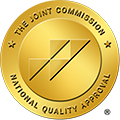Detoxification is a crucial first step in overcoming addiction by providing a stable, controlled environment to cleanse your body of addictive substances. However, this phase is only the beginning of a comprehensive journey toward long-term sobriety.
Detox Sets the Stage for Future Treatment
The primary purpose of undergoing drug or alcohol detox is to stabilize your physical and mental health. This process sets the stage for addressing underlying behavioral patterns and psychological issues linked to substance abuse.
While detox is a vital component of recovery, it is not a cure for addiction. You may find yourself struggling with the same triggers and behaviors that led to substance use if you lack an aftercare plan.
Strategies for Staying Clean After Detox
Statistics from the National Institute on Drug Abuse indicate that the relapse rates for substance use disorders are between 40% and 60% – similar to other chronic diseases such as diabetes or hypertension. This high rate underscores the importance of comprehensive treatment plans that extend beyond detox.
1. Develop a Detailed Aftercare Plan
Work with your team at Acworth Outpatient Detox to develop an aftercare plan tailored to your needs. This plan should outline ongoing treatment options, support groups, and therapy sessions that will help you manage your recovery.
2. Engage in Continuous Therapy and Counseling
Ongoing therapy helps address underlying issues that contribute to addiction, such as trauma, stress, and mental health disorders. Regular counseling sessions provide a space to develop coping strategies and receive emotional support.
3. Build a Supportive Network
Surround yourself with people who understand your goals, including friends, family, and peers in recovery. Support groups and community resources can offer encouragement from others who are facing similar challenges.
4. Commit to Healthy Lifestyle Changes
Incorporate regular exercise, a balanced diet, and sufficient sleep into your daily routine. These healthy habits can improve your physical well-being and mental health, reducing the likelihood of relapse.
5. Educate Yourself and Others
Understanding addiction and its challenges can empower you and your loved ones. Education helps demystify the process of recovery and fosters a supportive environment conducive to long-term sobriety.
6. Avoid Triggers
Identify situations, environments, or people that trigger your substance use and develop strategies to avoid or deal with them.
We Put a Sober Lifestyle Within Reach
Maintaining sobriety after detox is a lifelong commitment that requires dedication and a comprehensive treatment strategy for regaining control. At Acworth Outpatient Detox, we provide case management services to address underlying health problems, connect you with resources, and help you prevent a relapse. Your dedicated case manager will work with you to develop a personalized treatment plan.
While detoxifying from drugs or alcohol is a significant accomplishment, it is only one part of a multifaceted approach for managing your illness. Acworth Outpatient Detox simplifies the process and coordinates with other treatment providers on your behalf. We’re only a phone call away if you need a guide to recovery.






